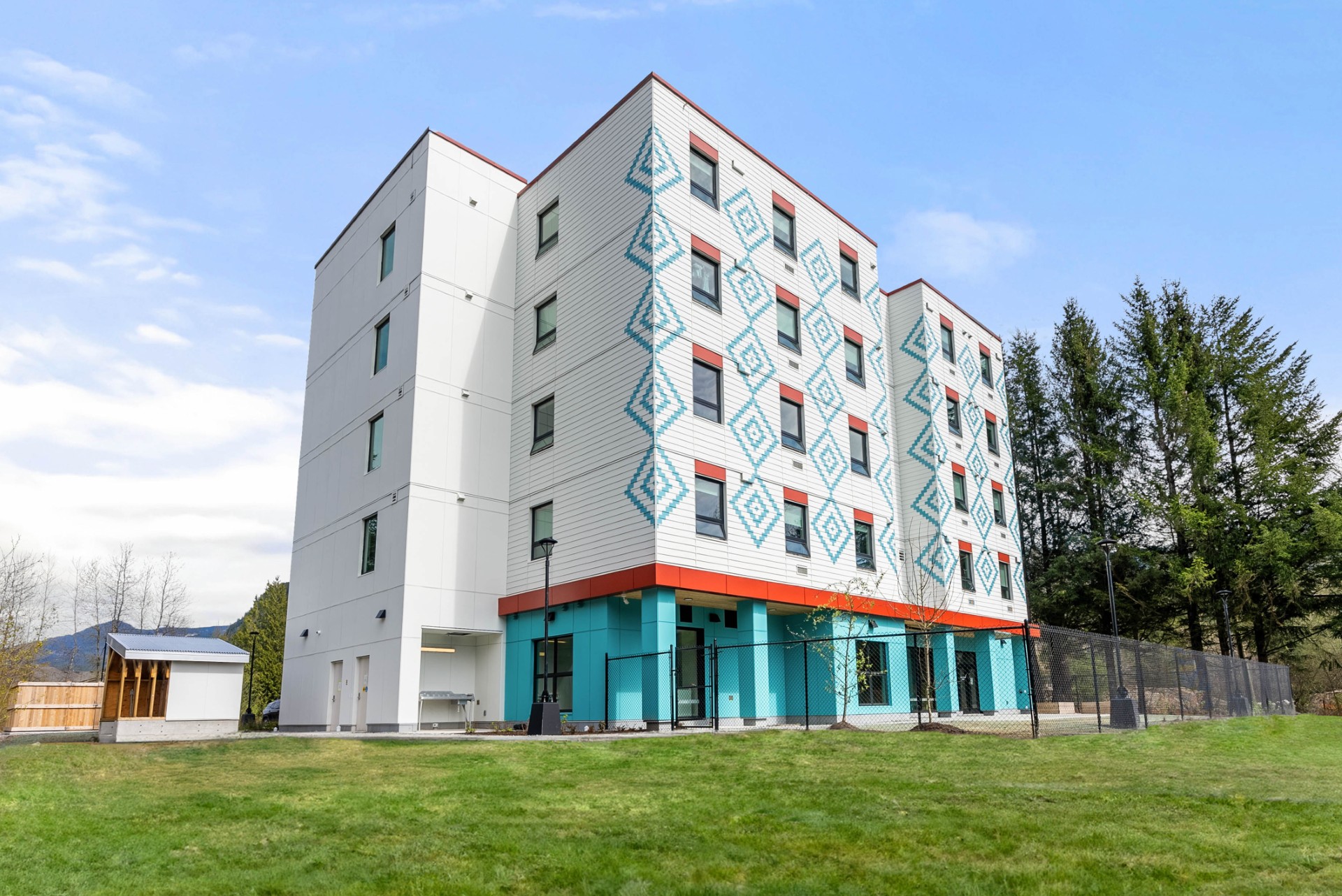Esḵéḵxwi7ch tl’a Sp’áḵw’us Place: NUQO Modular builds culturally informed modular housing for Squamish Nation
Projects Sponsor
The Esḵéḵxwi7ch tl’a Sp’áḵw’us Place Project was born of a need to address a critical housing shortage within the Squamish Nation. The goal was to provide housing that aligned with the Nation’s broader efforts to enhance living conditions while preserving cultural integrity. Adopting this approach meant working with local Indigenous craftspeople and artists to house individuals and single parent families in sustainable and culturally resonant modular homes that reflected Squamish traditions while meeting modern environmental standards.
Reaching these complex goals meant engaging in extensive consultations with Squamish elders and community members to understand their housing needs and cultural specifications. Careful research on sustainable building materials and energy-efficient design also had to be conducted, all of which led, for example, to the team working with local/regional modular manufacturers using local wood and other building materials to dramatically reduce transportation related GHG emissions. Through this buy/build local approach, NUQO staff could easily monitor production, with the added benefits of strengthening domestic manufacturing and helping to ensure the project met the latest standards in green construction.

The project’s design brainstorming sessions were an important means of gathering and then incorporating community feedback. From these sessions, home prototypes were developed and adjusted based on ongoing community input. These engagement sessions also helped the NUQO team overcome some significant Initial resistance from some community members who were understandably concerned about proposed non-traditional building methods. By continuously liaising with the community, demonstrating the benefits of modular construction and adapting designs to incorporate more traditional elements, buy-in was ultimately achieved and building could begin. This was also a community affair.

Throughout every step of the project, the use of locally sourced materials was heavily prioritized. As well, installations were performed by a workforce primarily composed of local companies with a base in British Columbia, and community members. This had the added benefit of promoting employment and skill development at all levels, meaning future projects will have an easier time getting off the ground.
Lack of modular experience from trades, architects, consultants, factories etc. did lead to delays this time around, but fortunately, the NUQO team were there to guide the build at every stage and the lessons learned and the skills developed at all levels are just one part of the project’s legacy.


Ultimately the project successfully delivered 62 modular homes, achieving a 30% reduction in energy usage compared to traditional building methods. The homes are equipped with green roofs and rainwater harvesting systems, significantly reducing water runoff and enhancing thermal performance. Community feedback has been overwhelmingly positive, with residents praising the comfort and cultural significance of their new homes.
The project demonstrates that it is possible to significantly improve living conditions while meeting sustainability targets. Culturally informed modular construction introduces a novel approach to indigenous housing, providing the kind of community-centric sustainable development that may well be a game-changer.
The project serves as a scalable and replicable model for other Indigenous and non-indigenous communities. By building homes, capacity, the local economy, and a greener future on a global scale through community-based development, NUQO provides a blueprint worth copying.













